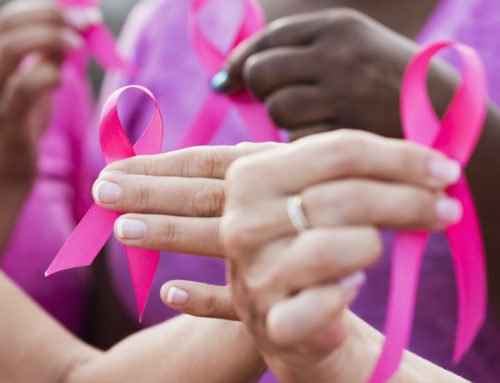Breast cancer is the most common cancer among women worldwide, and while it can occur at any age, the risk increases significantly with age. Nearly half of all breast cancer diagnoses happen in women over 65, making awareness and education essential for seniors and their families.
This guide provides important information about risk factors, prevention, screenings, and resources specifically for older adults.
Understanding Risk Factors in Seniors
While anyone can develop breast cancer, certain factors increase the likelihood in older adults:
-
Age – Risk rises steadily after age 50.
-
Family history & genetics – A close relative with breast or ovarian cancer, or inherited mutations such as BRCA1/BRCA2, can increase risk.
-
Hormonal factors – Longer exposure to estrogen (early menstruation, late menopause, or hormone replacement therapy) may raise risk.
-
Lifestyle – Obesity, alcohol use, and lack of exercise can contribute.
-
Previous cancers or radiation – Seniors who have had cancer before or radiation therapy to the chest area may face higher risk.
Early Detection Saves Lives
Early detection greatly improves treatment outcomes. For seniors, this includes:
-
Mammograms
-
Most health organizations recommend continuing mammograms until at least age 74.
-
After 75, the decision depends on overall health and life expectancy — discuss with your doctor.
-
-
Clinical breast exams
-
A healthcare provider can check for changes during routine visits.
-
-
Self-awareness
-
Seniors should know what’s normal for their bodies and report any changes promptly.
-
Warning Signs to Watch For
-
A lump or thickened tissue in the breast or underarm
-
Changes in size, shape, or symmetry of the breasts
-
Skin dimpling, redness, or irritation
-
Nipple changes (inversion, discharge, or pain)
-
Persistent breast or chest discomfort
Treatment Considerations for Seniors
Treatment options for breast cancer often include surgery, radiation, chemotherapy, hormone therapy, or targeted drugs. For seniors, doctors weigh treatment benefits against overall health and other conditions. Important points include:
-
Tolerability – Some treatments may be harder for older adults to tolerate.
-
Quality of life – Maintaining independence and comfort is a priority.
-
Support system – Family, caregivers, and home health providers play a vital role.
Prevention & Healthy Living
While not all breast cancers can be prevented, seniors can reduce risk through lifestyle choices:
-
Eat a balanced diet rich in fruits, vegetables, and whole grains.
-
Maintain a healthy weight.
-
Engage in regular physical activity (such as walking, swimming, or gentle aerobics).
-
Limit alcohol consumption.
-
Avoid smoking.
Resources for Seniors
-
American Cancer Society (cancer.org) – Education, screening guidelines, and support.
-
National Cancer Institute (cancer.gov) – Research-based information and clinical trial resources.
-
Local senior centers & hospitals – Many offer breast cancer awareness programs, support groups, and low-cost screenings.
Key Takeaway
For seniors, awareness and proactive care are the best defenses against breast cancer. Regular screenings, understanding risk factors, and living a healthy lifestyle all contribute to prevention and early detection. With support from healthcare providers, caregivers, and community resources, seniors can take confident steps toward protecting their health.
If you or someone you know is interested in care management or home healthcare services in South Florida, FirstLantic can help. We are locally owned and operated, providing our patients with the highest quality in-home care services in Fort Lauderdale (Broward County), as well as in-home care services in Delray Beach (Palm Beach County), North Miami (Miami-Dade) and Jupiter (Treasure Coast) since 2000. Click here to contact us.
 AVAILABLE 24 HOURS A DAY/7 DAYS A WEEK
AVAILABLE 24 HOURS A DAY/7 DAYS A WEEK Careers
Careers




